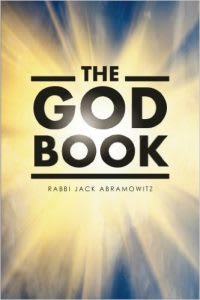5. What God is Not
The articles in this series are based upon ideas expressed in the Rambam’s Moreh Nevuchim (The Guide for the Perplexed). Numbers in brackets represent the volume and chapter of Moreh Nevuchim where these ideas are discussed.
Since God has no attributes, we are presented with a number of interesting phenomena:
* God exists but He has no attribute of existence;
* God knows all but He has no attribute of knowledge;
* God lives but He has no attribute of life;
* God is One but He has no attribute of unity;
et cetera, et cetera. [I, 57] None of these things is an attribute separate from God. In short, as we have written, "God is God."
We can, however, ascribe "negative attributes" to God. [I, 58] That is, we can say what He is not. He does not have a body. He was not created. There is no Being like Him. He does not tire. The more we understand what God is not, the closer we can come to understanding what He is. [I, 60]
The Rambam uses the example of a ship. Let's say you didn't know what a ship was and a number of people gave you negative information on the subject. One person informed you that it's not a plant. Another told you that it's not a rock. A third told you that it's not a sphere, while a fourth informed you that it's not completely solid. The more you learned what a ship isn't, the better your mind would be able to formulate a conception as to what it is. That's the only way we can truly come to get an idea of God. The more "nots" we get, the closer our understanding becomes.
Even if we were to ascribe to God every attribute that would be considered glowing praise for a human being, our understanding of Him would still be farther away than by detailing what He is not. For example, we could say that God knows all, but His "knowledge" is so far removed from our "knowledge" that it would be ludicrous to try to use one as a basis of comparison for the other. Our knowledge constantly updates based on new information as it is received, but God is unchanging. His knowledge never updates as He knows all even before a thing comes into existence. The true attribute is the negative statement "His knowledge is not like our knowledge." Our attempt at defining a positive attribute only led us to realize a negative attribute.
Having wrong ideas about God actually distances us from Him. If someone thought that an elephant had wings, lived in the sea, had a face like a human and could turn invisible, you wouldn't say that he had his facts about elephants wrong. Rather, you'd say that he was describing a mythical creature and calling it by the elephant's name. Similarly, the attempt to describe God by using attributes leads a person to absurd conclusions about God. One then walks away with the idea of an imaginary being whom he calls by God's name.

